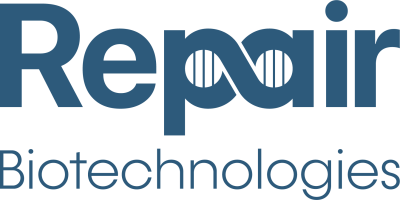Repair Biotechnologies Demonstrates Rapid Reversal of Atherosclerosis in Mouse Models
SYRACUSE, N.Y., April 2, 2024 (Newswire.com) - Repair Biotechnologies, Inc. (https://www.repairbiotechnologies.com) announced today that its lipid nanoparticle (LNP)/messenger RNA (mRNA) therapy has rapidly reversed the progression of atherosclerosis in mouse models applicable to both the rare genetic condition of familial hypercholesterolemia as well as atherosclerosis in the broader population.
Repair Biotechnologies develops gene therapies based on the proprietary Cholesterol Degrading Platform (CDP) that safely break down excess free cholesterol inside cells. Excess free cholesterol is toxic to cells and contributes to the development of numerous conditions, including atherosclerosis and metabolic dysfunction-associated steatohepatitis (MASH). Established therapies that reduce LDL-cholesterol in the bloodstream have little effect on intracellular free cholesterol.
"Unfortunately statins and PCSK9 inhibitors that reduce LDL-cholesterol in the blood exhibit little ability to reduce the size of established atherosclerotic lesions," said Mourad Topors, Chief Scientific Officer at Repair Biotechnologies. "Our studies in severely atherosclerotic mice demonstrate that LDL-cholesterol is the wrong target if the goal is the outright regression of plaque and dramatic reduction in risk of cardiovascular events. Instead, clearance of intracellular free cholesterol can potentially achieve these goals."
Repair Biotechnologies scientists treated atherosclerotic APOE-null mice and LDLR-null mice over a period of six weeks with a CDP LNP-mRNA therapy, expressing therapeutic proteins that safely break down toxic free cholesterol in cells. APOE-null mice are a widely used, consensus model for atherosclerosis in the general population, while LDLR-null mice are the model for homozygous familial hypercholesterolemia, a genetic condition in which the LDLR gene suffers a loss of function mutation and which is characterized by greatly accelerated atherosclerosis.
Both mouse models exhibited a dramatic reversal of atherosclerosis. Plaque in the aortic root of APOE-null mice exhibited a 19% drop in plaque lipids and a corresponding 23% increase in plaque collagen, indicating stabilization of soft, lipid-laden plaque that is prone to rupture. In LDLR-null mice, plaque obstruction of the aortic root was reduced by 17%, while treated mice exhibited a greatly improved capacity to run on a treadmill, a measure of cardiovascular health.
"Our new results in atherosclerotic mice are as impressive as the results we achieved in mouse models of MASH," said Reason, co-founder and CEO of Repair Biotechnologies. "We are preparing for mid-2024 pre-IND meetings with the FDA for treatment of the rare genetic condition of homozygous familial hypercholesterolemia, as well as the treatment of atherosclerosis more generally. Our LNP-mRNA therapy is applicable in principle to the reversal of all forms of atherosclerosis."
In high-fat diet mouse models of MASH, Repair Biotechnologies scientists have demonstrated as much as a 44% reduction in measures of liver fibrosis following eight weeks of CDP LNP-mRNA treatment. In March 2024, Repair Biotechnologies received favorable and comprehensive pre-IND feedback from the FDA. The company leadership looks forward to bringing this treatment to the clinic.
Source: Repair Biotechnologies, Inc.
